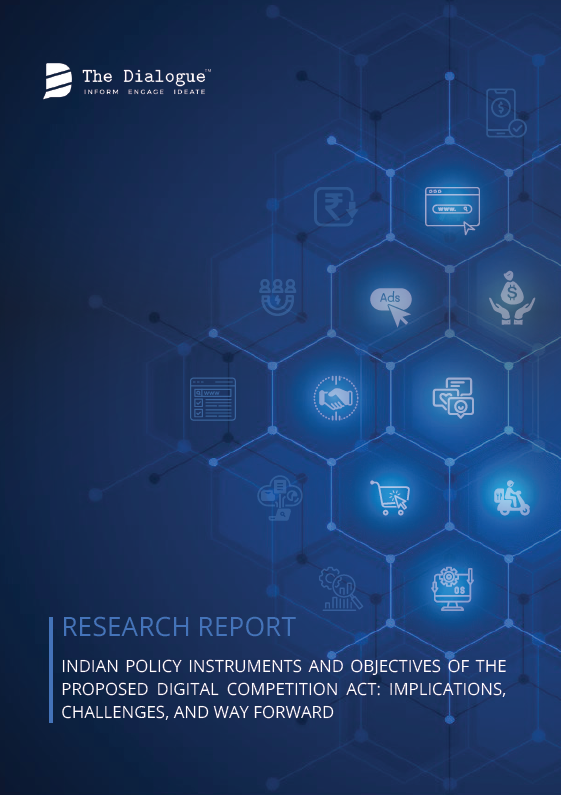In India, the discourse surrounding the establishment of an ex-ante regulatory framework was initiated with the release of the 172nd Report on ‘Promotion and Regulation of E-commerce in India’ by the Standing Committee on Commerce (Commerce Committee) in June 2022. This was followed by the release of the 53rd Report by the Parliamentary Standing Committee on Finance (PSC) addressing ‘Anti-competitive conduct by big tech companies.’ The latter report recommended strengthening the competition framework through an ex-ante regulatory approach, involving the identification of gatekeepers and the imposition of specific obligations.
The Anti-competitive practices (ACPs) outlined in the report encompass various domains, including transactional practices such as mergers and acquisitions (M&As), data practices, and the presentation of search results on platforms. The Report proposes the prohibition of certain ACPs ex-ante through a new Digital Competition Act (DCA), advocating for a departure from the ex-post facto regulation under the existing Competition Act. All listed ACPs, except for anti-competitive transactions, are recommended for prohibition. For these transactions, the Report suggests mandatory notification to the Competition Commission of India (CCI), irrespective of whether they meet the notifiability criteria under the Competition Act.
Subsequently, significant developments have unfolded, including the establishment of the Committee on Digital Competition Law (CDCL), tasked with conducting a detailed analysis and drafting a law on the subject. The Parliamentary Standing Committee’s report identified 10 ACPs that, in its opinion, warrant new ex-ante regulation through the DCA. The report aims to achieve key objectives, including limiting concentration and its effects, ensuring a level playing field and neutrality of the platform, promoting healthy data utilization, safeguarding user interests, and establishing graded classification for enhanced compliance.
This research paper delves into these objectives, highlighting their overlaps, conflicts, and potential implications within the broader regulatory landscape and other policy instruments of the country. The analysis is designed to provide insights for policymakers, including the CDCL, the CCI, and relevant central ministries. The paper addresses challenges presented by these overlaps and conflicts and offers recommendations for policymakers to consider in their resolution efforts.





